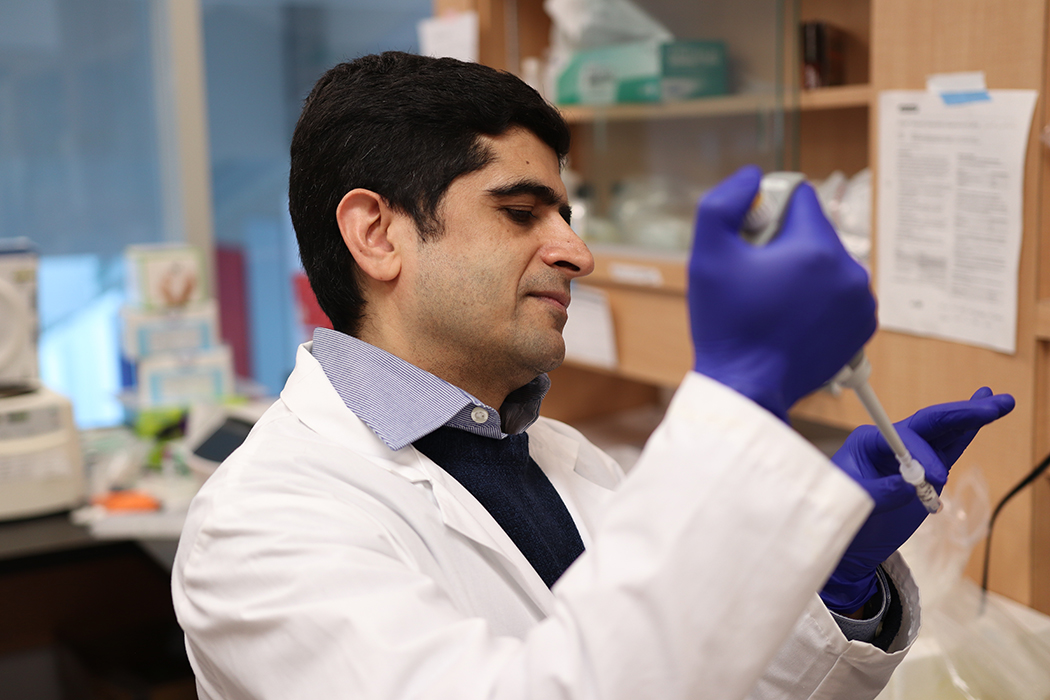
Tanveer Sharif
UM-led study improves understanding of fatal brain cancer
A new study from researchers at the University of Manitoba’s Rady Faculty of Health Sciences has identified a possible treatment option and greater understanding of recurrent glioblastoma, a fatal form of brain cancer and the one that took beloved Canadian musician Gord Downie’s life in 2017.
The study, published in Neuro-Oncology, a journal of the Society for Neuro-Oncology, found unique metabolic characteristics of the later-stage version of the disease. This discovery could lead to improved survival outcomes for recurrent glioblastoma patients, said corresponding author Dr. Tanveer Sharif, associate professor of pathology and Canadian Cancer Society Emerging Scholar with the Max Rady College of Medicine.
Sharif led the study with a team of researchers from the departments of pathology, human anatomy and cell science, biochemistry and medical genetics, pharmacology and therapeutics, as well as the UM Faculty of Science and surgery department at McMaster University. The study was funded by the Canadian Cancer Society, Canadian Institutes of Health Research, the Natural Sciences and Engineering Research Council of Canada and Cancer Research Society.
Sharif said that 95 per cent of patients with glioblastoma die within five years of their diagnosis, and that most of those patients die from a recurrent form of the disease.
“When a patient is treated for a primary diagnosis of glioblastoma, there is usually a complete regression of the tumor. We see that the patient is totally fine, but within a few months the cancer comes back and is deadly. It becomes unresponsive to the existing standard care of therapy,” he said.
The study looked at tumor cells from 10 glioblastoma patients. In tests with mice, the team was able to target the unique characteristics of the recurrent disease to prolong survival using a drug currently in clinical trials to treat Alzheimer’s disease.
“There are not many therapeutic interventions or treatments available for the recurrent disease, so these findings offer new insight. Identifying the compound MSDC-0160 provides a great edge. The drug has already passed lots of clinical testing stages, so it has the potential to be quick-to-clinic,” Sharif said.
He said the findings can also lead to more discoveries in the field of glioblastoma research.
“Our findings are bringing a breadth of knowledge generated by analysis at the level of genes, proteins and metabolites that many other researchers can use to drive their studies,” he said.
Sharif noted that Neuro-Oncology is a prestigious journal with a low acceptance rate and impact factor of 16.4.
“This publication is a testament to our team’s competitiveness at the national level and our inspiring long-term vision to make impactful research discoveries and be the leading research group in the field of brain cancer in Canada,” he said.






